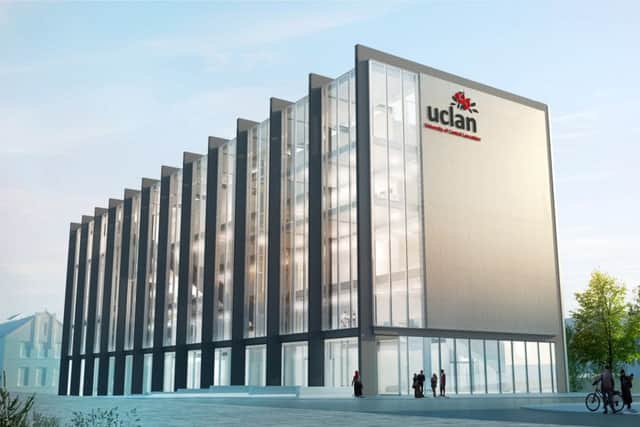Campus masterplan for city is shaping up


After extensive consultation, plans have been submitted for the Engineering Innovation Centre (EIC), a £30 million integrated hub for teaching, research and knowledge exchange which will bring together the region’s expertise from within academia and industry.
The EIC, which is the first major milestone in UCLan’s £200 million Campus Masterplan, has been identified as a signature project within Lancashire’s Strategic Economic Plan and has secured £10.5 million via the Lancashire Enterprise Partnership’s (LEP) Lancashire ‘Growth Deal’ with Government.
Advertisement
Hide AdAdvertisement
Hide AdIt received another £5 million cash injection from the Higher Education Funding Council for England) which will go towards filling the facility with advanced technology and specialist equipment.


The facility will have a number of objectives including reclaiming Lancashire’s role as a national centre for advanced manufacturing, ensuring that local skills reflect social and economic needs, and increasing the number of females in engineering careers.
Rob Wallace, dean of the School of Engineering, said: “This outline planning application sets out the university’s ambitious and exciting vision to boost levels of innovation through increased knowledge and industry partnerships, both nationally and internationally.”
He added: “Now that the application has been lodged we can really start to look ahead to the EIC and the important role it will play in Lancashire’s economy and the UK’s wider Industrial Strategy. UCLan aims to close the skills gap by inspiring and shaping the next generation of engineering leaders, producing an extra 500 locally trained graduates a year and increasing the number of young people and, in particular, the proportion of females who choose to take up engineering at a local university.”